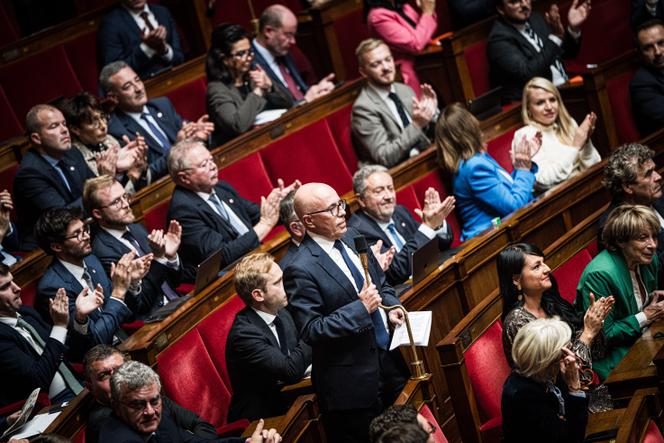


Should the French government sell some of its assets to solve its debt crisis, such as its shares in private companies like telecom giant Orange or multinational power company Engie? This is the approach that many on the right and the far right are urging the government to explore. They argue that rather than slashing public spending or further raising taxes, the government could recoup billions, or even tens of billions of euros, by offloading part of its equity portfolio.
Prime Minister Michel Barnier's government has so far chosen not to take this path. On Tuesday, October 15, Economy and Finance Minister Antoine Armand instead mentioned a different option: investing in Opella, manufacturer of the beloved French painkiller Doliprane, which healthcare giant Sanofi wants to sell to an American fund. A lively debate is expected when Parliament discusses the budget bill.
Former interior minister and MP Gérald Darmanin initiated the debate in an interview with financial daily Les Echos on October 6. "Work needs to be done on the State's participation in companies," Darmanin stated, citing shares held in listed companies such as Orange (13.4%), gambling operator Française des Jeux (21.1%), automobile multinational Stellantis (6%) or Engie (23.6%). "It would be better to sell these participations than to increase corporate taxes," he said. "The State has no business being there."
The former minister clearly failed to convince his colleagues in the presidential coalition. Macron-aligned MPs did not table any such amendments before the opening of the Assemblée Nationale's budget session this week. Eric Ciotti, a former member of the conservative Les Républicains party and now an ally of the far-right Rassemblement National (RN), has instead taken the lead. He is proposing that the French State sell "no later than January 1, 2025" all its shares in Engie and car maker Renault (15%) "at a time when it is essential to straighten out our public accounts." Like the RN, several of Ciotti's allies also support privatizing public broadcasting. One of their amendments aims, for the time being, to stop all public funding of radio and TV channels.
The hard right has thus rediscovered one of its classic political hallmarks: "less State" and privatization. Following waves of nationalizations after the Second World War and the first election of Socialist president François Mitterrand in 1981, the French State's influence in the economy declined. The privatization movement, launched by the governments of former prime ministers Jacques Chirac (1986-1988), Édouard Balladur (1993-1995) and Allain Juppé (1995-1997), was continued by Lionel Jospin (1997-2002). However, the pace eventually slowed. According to INSEE, the share of state-owned companies in salaried employment fell from 10.5% in 1985 to 2.1% in 2021.
You have 52.01% of this article left to read. The rest is for subscribers only.
